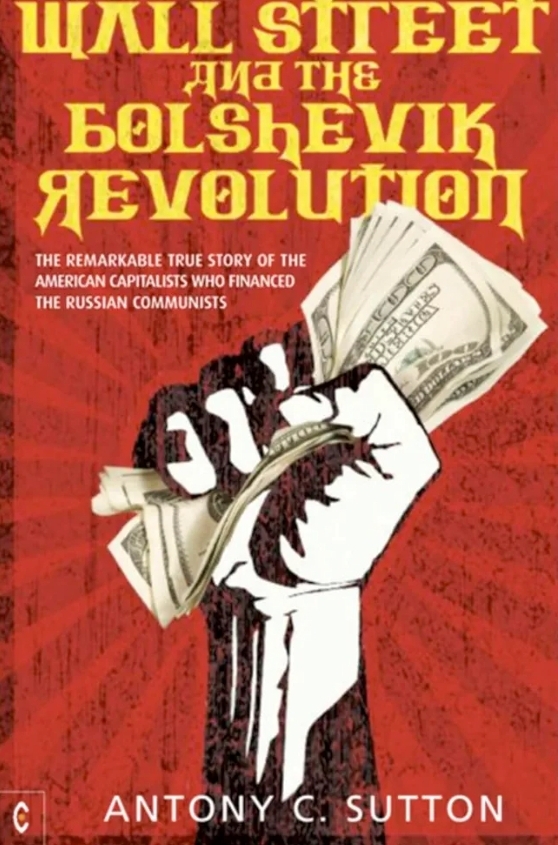Antony C. Sutton’s work on the 1917 Bolshevik Revolution, particularly in Wall Street and the Bolshevik Revolution (1974), presents a controversial and detailed analysis of the financial and industrial support that Sutton claims came from Western capitalist interests to aid the Bolsheviks in their overthrow of the Russian monarchy and establishment of Soviet rule. Here is a summary of Sutton’s key arguments and their implications:
Key Themes in Sutton’s Analysis
Western Financial Support for the Bolsheviks
- Sutton argues that certain Wall Street financiers and industrialists provided funding to the Bolshevik movement during and after the Russian Revolution.
- This support was allegedly given despite ideological differences, as the financiers stood to benefit from the destabilization of Tsarist Russia and subsequent control of its vast natural resources.
- Sutton identifies individuals and entities, such as the banking houses of Kuhn, Loeb & Co., as alleged contributors to Bolshevik finances.
Paradoxical Alliance
- The collaboration between capitalist interests and communist revolutionaries appears contradictory. Sutton suggests that capitalism’s financial elite had pragmatic motives:
- Gaining access to untapped Russian resources.
- Creating a managed opposition in global politics to consolidate control through conflict.
- This aligns with Sutton’s broader thesis that geopolitical struggles often serve the interests of an elite few, regardless of the ideologies involved.
Lenin and Trotsky’s Connection to the West
- Sutton discusses Lenin’s return to Russia during the revolution with the assistance of German authorities, who had their own strategic motives.
- He also highlights the role of Leon Trotsky, who traveled from the United States to Russia, suggesting his journey was facilitated by Western powers.
Corporate Exploitation of Soviet Resources
- After the revolution, Sutton argues that Western businesses benefited from the Soviet Union’s industrialization programs.
- Companies like General Electric, Standard Oil, and others allegedly helped build the Soviet economy, even as the USSR positioned itself as an ideological enemy of capitalism.
Controlled Conflict Theory
- Sutton suggests that funding the Bolsheviks and the subsequent Cold War allowed Western powers to maintain a dialectic of control.
- The capitalist-communist struggle served as a tool to centralize authority, regulate markets, and suppress true political and economic autonomy.
Implications of Sutton’s Work
Cynicism Toward Ideological Wars
- Sutton’s work challenges the narrative of ideological purity in global conflicts, suggesting that economic interests often overshadow political ideologies.
Elites Manipulating Global Events
- By documenting alleged ties between Wall Street and the Bolsheviks, Sutton argues that powerful elites manipulate revolutions and wars to serve their interests.
Rewriting Historical Narratives
- Sutton’s claims provoke a reevaluation of widely accepted historical accounts, urging readers to consider the role of hidden interests in shaping major events.
Impact on Modern Geopolitics
- The themes Sutton explores resonate with contemporary discussions about corporate influence, globalization, and the intersection of politics and economics.
Sutton’s analysis of the 1917 Bolshevik Revolution presents a provocative view of history, suggesting that the revolution was not purely a grassroots movement of the oppressed but was influenced and supported by external financial interests. While his work remains controversial, it serves as a compelling reminder to scrutinize the hidden forces behind major historical events.







